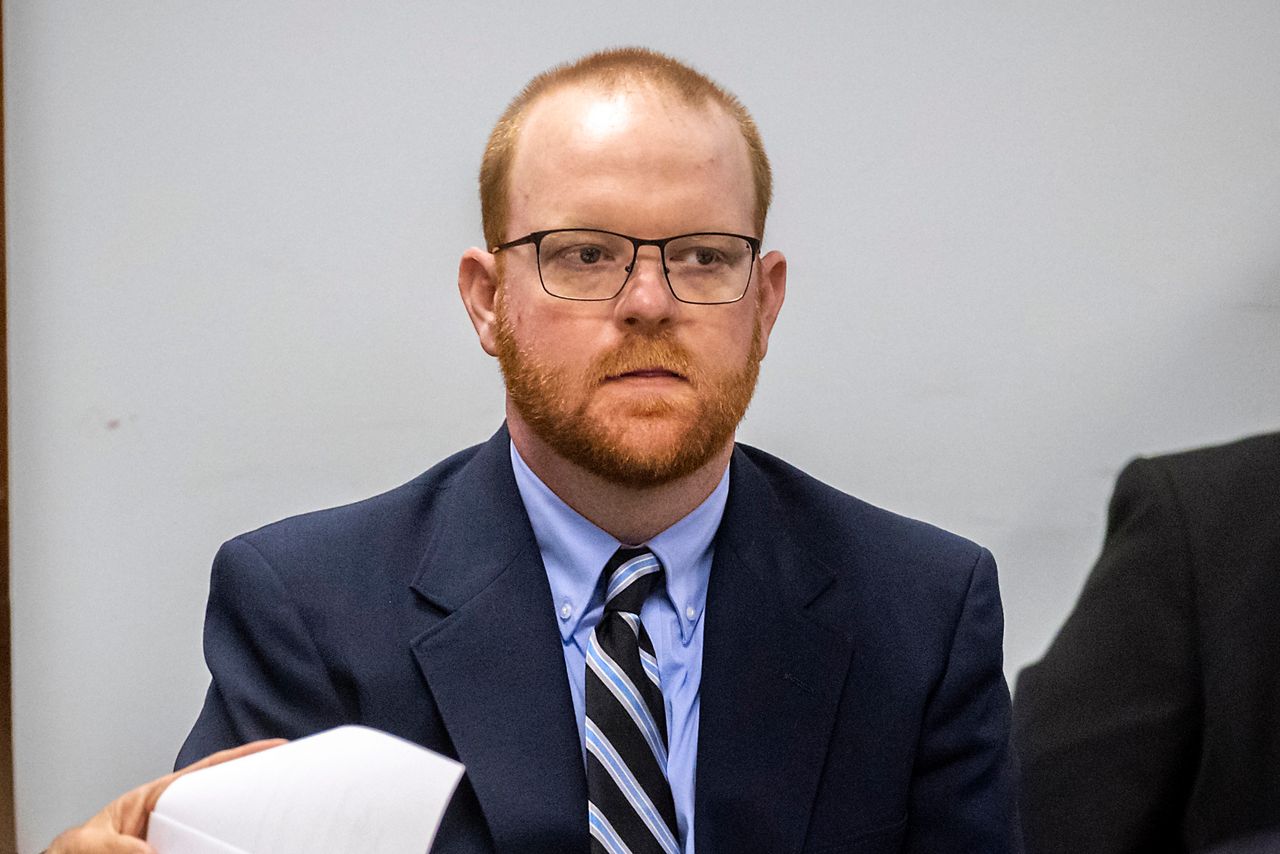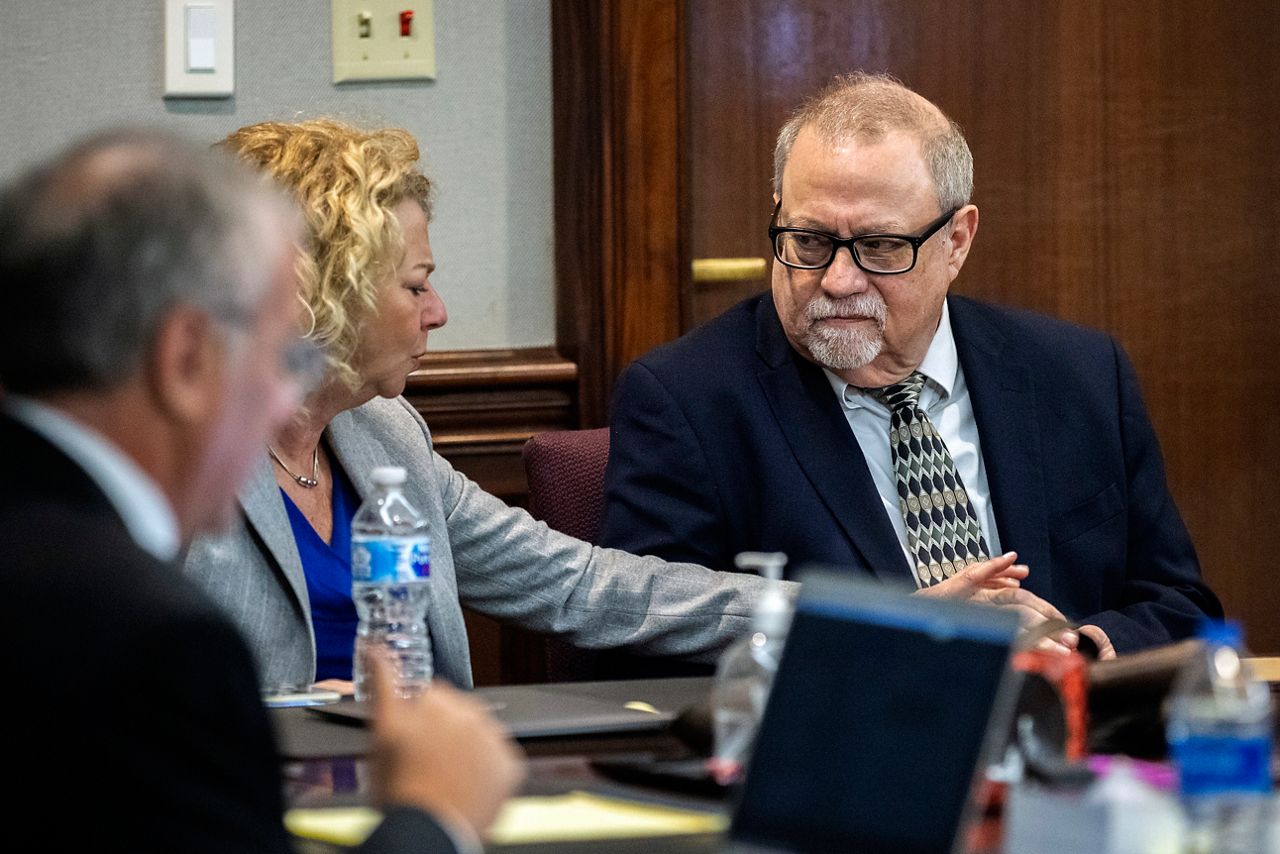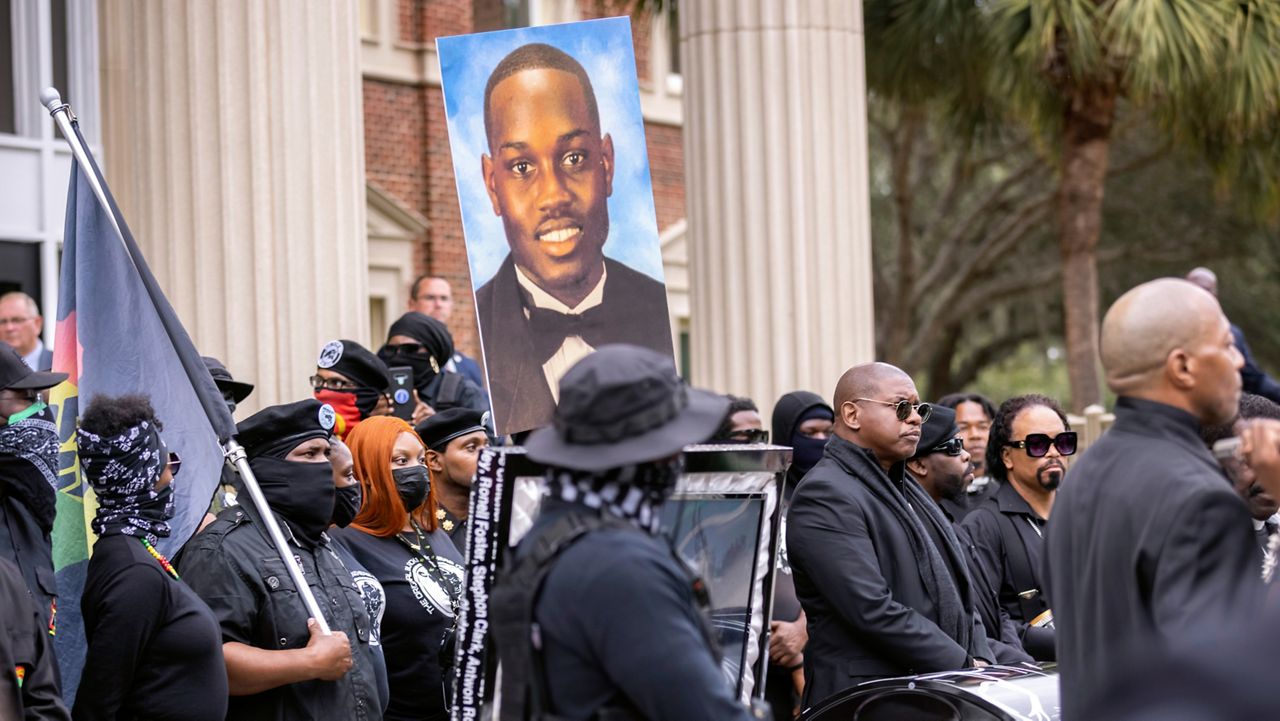All three men accused of killing Ahmaud Arbery, a 25-year-old Black man fatally shot in February of 2020 while jogging through a neighborhood in Brunswick, Georgia, were found guilty on murder and numerous other charges on Wednesday afternoon.
Gregory McMichael, his son Travis McMichael, and neighbor William “Roddie” Bryan each faced nine counts of malice murder, felony murder, aggravated assault, false imprisonment and criminal attempt to commit a felony.

Travis McMichael, 35, was found guilty of all charges against him, including malice murder and felony murder.

Greg McMichael, 65, was found not guilty of malice murder, but was found guilty on all other counts, including felony murder, assault and false imprisonment.

Bryan was found not guilty on one count each of malice murder, felony murder and aggravated assault, but was found guilty on six other charges including felony murder, aggravated assault, false imprisonment and attempt to commit a felony.
All three men will be required to stay in custody until their sentencing hearing, a date for which has not yet been announced.
The men face minimum sentences of life in prison. It is up to the judge to decide whether that comes with or without the possibility of parole.
Outside the courtroom, Arbery's mother Wanda Cooper-Jones said that, "I never thought this day would come — but God is good."
"Thank you for those who marched, those who prayed," she continued, saying that Arbery – calling him by his nickname of "Quez" – "will now rest in peace."
Rev. Al Sharpton thanked the lawyers and prosecutors, activists and supporters, and made special mentions of Arbery's parents.
"They lost a son, but their son will go down in history as one that proved that if you hold on, that justice can come," he said, adding: "Let the word go forth all over the world, that a jury of 11 whites and one Black in the Deep South stood up in the courtroom and said that Black lives do matter."
President Joe Biden weighed in after the verdict, writing that Arbery's killing "is a devastating reminder of how far we have to go in the fight for racial justice in this country."
"Mr. Arbery should be here today, celebrating the holidays with his mother, Wanda Cooper Jones, and his father, Marcus Arbery," the president continued. "Nothing can bring Mr. Arbery back to his family and to his community, but the verdict ensures that those who committed this horrible crime will be punished."
"While the guilty verdicts reflect our justice system doing its job, that alone is not enough," Biden added. "Instead, we must recommit ourselves to building a future of unity and shared strength, where no one fears violence because of the color of their skin."
"My administration will continue to do the hard work to ensure that equal justice under law is not just a phrase emblazoned in stone above the Supreme Court, but a reality for all Americans," he concluded.
Video of Arbery's killing sparked nationwide outrage when it was made public last year — which occurred two months after his death, and was the ultimate tipping point that led to the Georgia Bureau of Investigation’s involvement in the case, and the subsequent arrest of the McMichaels and Bryan.
In the video, the McMichaels were seen after having grabbed guns and jumped in a pickup truck to pursue the 25-year-old Black man after seeing him running in their neighborhood outside the Georgia port city of Brunswick in February 2020.
Bryan joined the pursuit in his own pickup and recorded cellphone video of Travis McMichael fatally shooting Arbery.
The McMichaels told police they suspected Arbery was a fleeing burglar when they armed themselves and jumped in a pickup truck to chase him. Bryan joined the pursuit when they passed his house and recorded cellphone video of Travis McMichael blasting Arbery at close range with a shotgun as Arbery threw punches and grabbed for the weapon.
On the 911 call reviewed by the jury, Greg McMichael said to an operator: “I’m out here in Satilla Shores. There’s a Black male running down the street.”
He then started shouting, apparently as Arbery was running toward the McMichael’s idling truck with Bryan’s truck coming up behind him: “Stop right there! Damn it, stop! Travis!” Gunshots could be heard a few seconds later.
The fatal shooting became part of a larger national reckoning on racial injustice, issues that once again bubbled to the surface over the course of the trial — first when a defense attorney attempted to block “Black pastors” from the courtroom, and again when he compared actions supporting Arbery’s family, including a rally of Black pastors held outside the courthouse the day before, to a “public lynching” of the three white defendants.
Though prosecutors did not argue that racism motivated the killing, federal authorities have charged them with hate crimes, alleging that they chased and killed Arbery because he was Black. That case is scheduled to go to trial in February.
The Associated Press contributed to this report.








